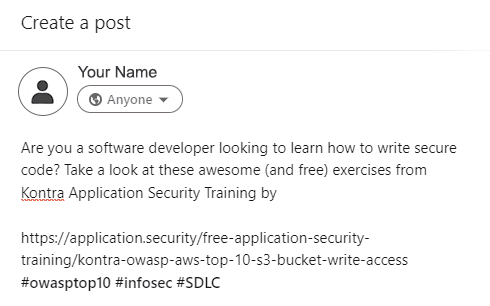Despite an economic downturn, and massive layoffs in the tech industry in the early months of 2023, the cybersecurity industry has remained steady. According to ISC2, the industry reached an all-time high of 4.7 million workers in 2022, adding 464,000 new cyber workers globally. Despite this, a talent shortage persists with approximately 3.5 million unfilled positions worldwide. With cyber threats increasing daily, entry-level cybersecurity roles can be critical to maintaining enterprise security.
What is causing the cybersecurity talent gap?
The problem is twofold. Cyber threats are continually increasing, making the demand for talent greater. At the same time, educational opportunities to enter the industry have not kept pace. What’s more, there are so many specialties under the overarching umbrella of cyber that no single individual could realistically be an expert in all of them. Information and technology is also continuously changing, making it more difficult for even industry veterans to keep up given how fast information moves.
What entry-level roles are available and why are they so impactful to Enterprise Security?
Entry-level cybersecurity positions are, quite simply, the bedrock of creating and maintaining a secure digital environment. These roles encompass a range of responsibilities aimed at protecting sensitive data, maintaining the integrity of systems, and preventing unauthorized access. Cybersecurity analysts, technicians, and junior engineers often fill these positions, forming the first line of defense against cybercriminals seeking to exploit vulnerabilities in systems and networks. One of their many responsibilities is to monitor networks for suspicious activities, analyze logs, identify any potential threats, and take immediate action to mitigate risks.
These positions are also often tasked with conducting vulnerability assessments and penetration testing to identify any weaknesses that could open an organization up to risk. By addressing these threats proactively, entry-level cybersecurity professionals play an absolutely critical role in preventing cyber attacks.
These professionals also serve a crucial purpose in the company ecosystem. Entry-level cyber employees often act as a bridge between other security professionals who have greater technical knowledge and the rest of the team. They’re able to communicate security measures more effectively to various departments and create an understanding of why these policies need to be implemented for everyone’s benefit. This interdepartmental collaboration ensures that security is not seen as a burden, but rather a crucial part of business operations.
Moving Up the Cybersecurity Employment Ladder
Entry-level cybersecurity positions serve as stepping stones toward more advanced roles in the industry. The fundamental knowledge of security principles, protocols, and technologies gained in these roles forms the basis for a successful and rewarding career. As individuals gain experience and expertise, they can move on to more specialized roles such as security analysts and threat hunters. Security analysts, for example, build upon the skills acquired in entry-level positions to analyze threats and vulnerabilities in greater depth. They learn to dissect complex attack patterns, investigate incidents and develop new strategies to enhance the company’s security posture. Threat hunters go a step further by actively seeking out potential vulnerabilities and hidden risks before they can be exploited.
The career trajectory doesn’t end there. Seasoned professionals often transition into leadership roles, becoming cybersecurity managers or even chief information security officers (CISOs). These positions involve setting the strategic direction for an organization’s cybersecurity efforts, managing teams of security experts, and making critical decisions to safeguard digital assets. The journey from entry-level positions to leadership roles signifies the continuous learning and adaptability required in this continuously evolving field.
Navigating the path to a Cybersecurity Career
Many people hesitate to even start a cybersecurity career because they are under the false impression that they need years of education or training to succeed in the field. In reality, the industry has vast opportunities for people of all technical backgrounds, and short-term certification programs are making it more accessible and more affordable to enter the field.
Short-term certification programs break down the entry barriers to cybersecurity. They include:
- Increased affordability and accessibility with many scholarships and funding options available as well as the option for students to move at their own pace.
- Hands-on coursework that gives students experience with the very latest cutting-edge tools and technology. Learners are exposed to real-world scenarios which enable them to develop practical problem-solving skills. This emphasis on hands-on training also ensures that graduates are not only well-versed in theory but also adept at applying that knowledge in practical situations.
- Opportunities for further professional development. Success in the cybersecurity field also requires a commitment to lifelong learning, which is why many programs, including ThriveDX’s immersive bootcamps, offer ongoing training and professional development so that graduates remain up-to-date in the latest advancements in their field, and are also able to upskill to new roles.
In this digital age where the fabric of our society is interwoven with technology, the importance of entry-level cybersecurity positions cannot be overstated. These roles serve as the guardians of digital assets, company security, and private data. They lay the foundation for a secure digital future by identifying threats, responding quickly to incidents and collaborating across organizations to ensure that security remains a top priority.
A new way forward with apprenticeships
At ThriveDX, we’re committed to helping learners launch new careers and also allowing companies to reskill current employees to build a robust cybersecurity sector. To that end, the company has launched its Cybersecurity Apprenticeship Program, an innovative initiative designed to directly address the skills and diversity challenges that the industry is facing.
Working with Apprenti, ThriveDX is training selected apprentices through its immersive cybersecurity bootcamps at zero-cost. This initiative, made possible through a grant awarded to Apprenti by the U.S. Department of Commerce’s Good Jobs Challenge, will allow companies to seek out diverse and skilled talent to fill open cyber positions inside their organizations, while also allowing them to upskill current employees who may be looking to move into a new role. To foster diversity, a majority of apprenticeship candidates will hail from underrepresented and under-resourced communities, including veterans of the U.S. military. To learn more about the Cybersecurity Apprenticeship Program visit, thrivedx.com//cybersecurity-apprenticeship-program.


